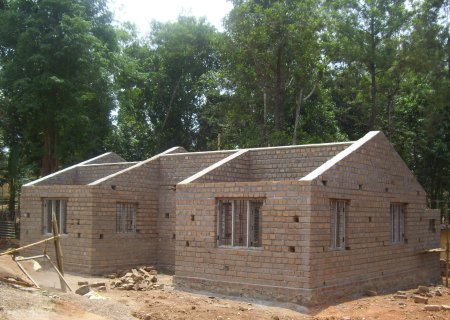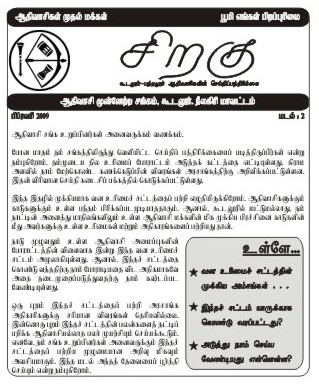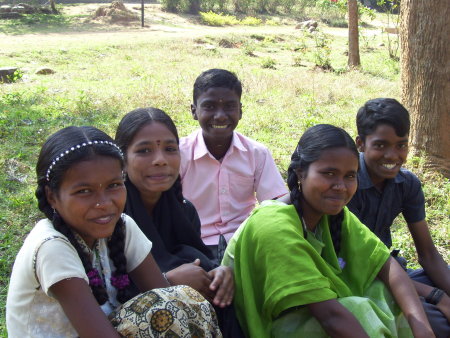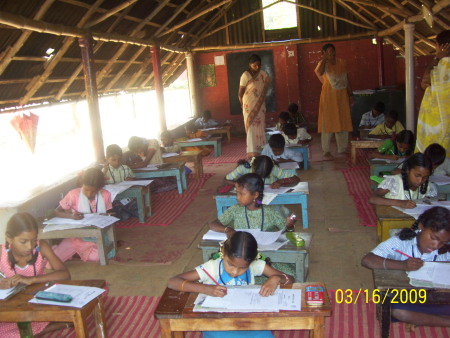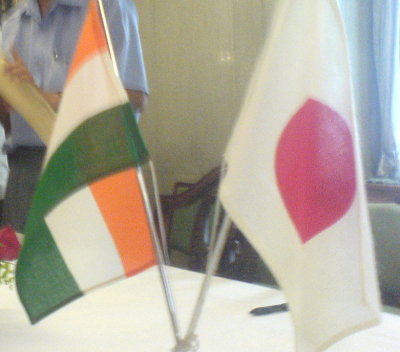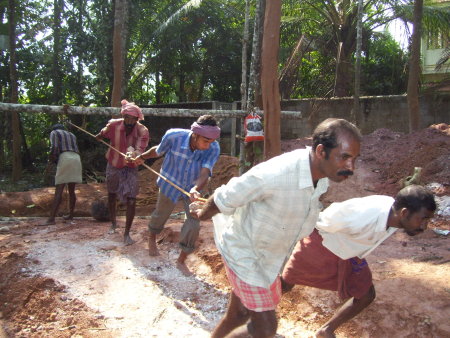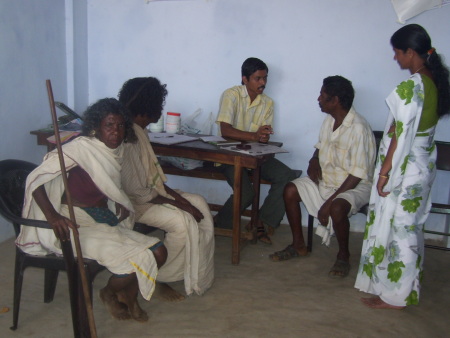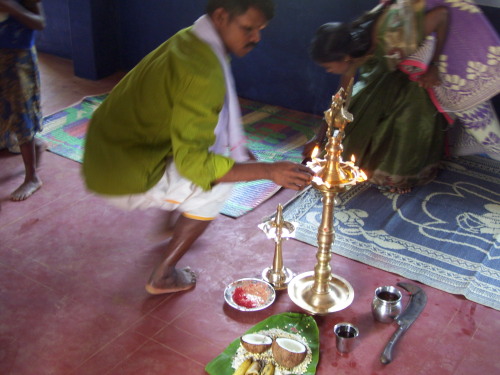
1/13 : The inauguration function started with leaders of
all five tribes lighting a lamp - a show of cultural unity.
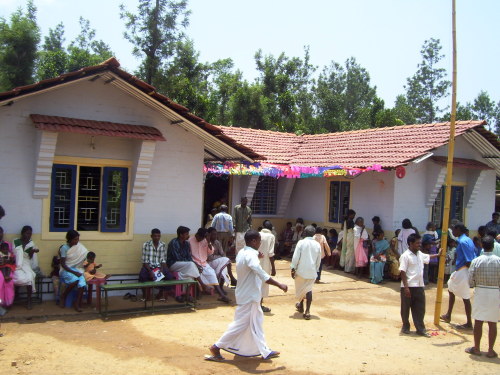
2/13 : Sangam members of
Ponnani area and other areas participated in the inauguration
function.
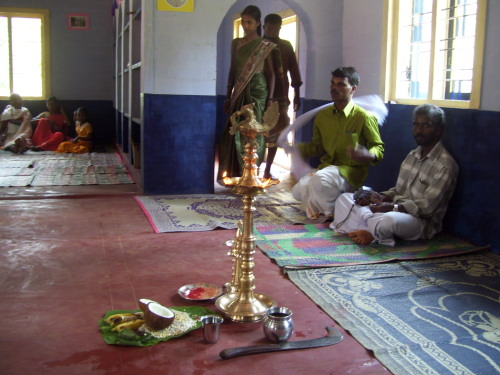
3/13 : All the Ponnani area
team members were busy with the entire function - after all, it is
their long cherished dream.
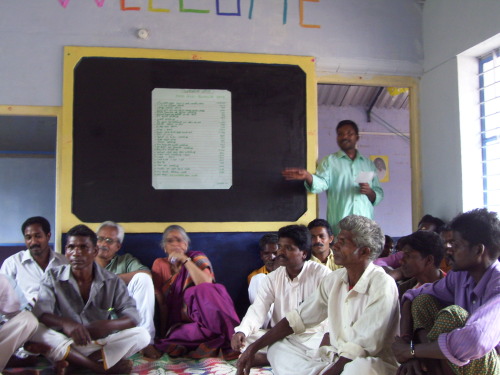
4/13 : Jayachandran, member of
the Ponnani Area Team explained the costs involved in the construction
of the building.
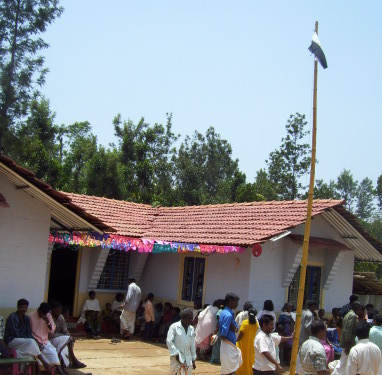
5/13 : AMS Flag was hoisted in
front of the new Area Centre Building to clearly demonstrate that it is
a building of the Adivasi Munnetra Sangam.
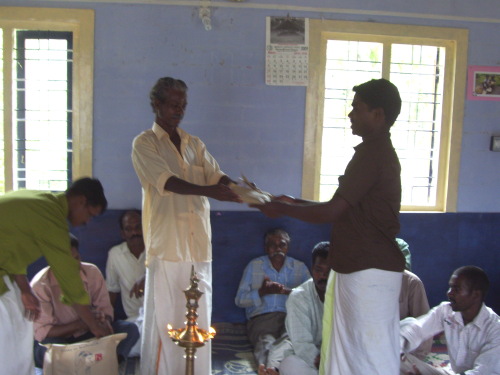
6/13 : The Chief Mason, Sasi
was honoured by the Area Leader, Mr. Chemban - a great achievement for
someone from the Paniya community!
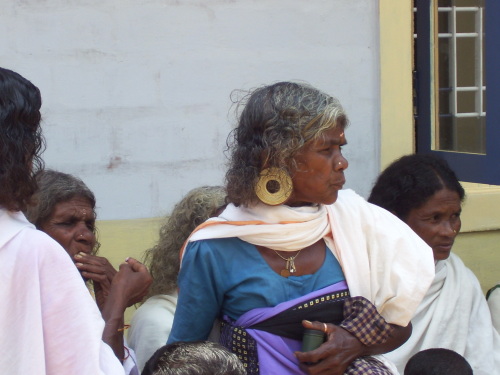
7/13 : Nice to see old Paniya
women also participating in the inauguration function with enthusiasm
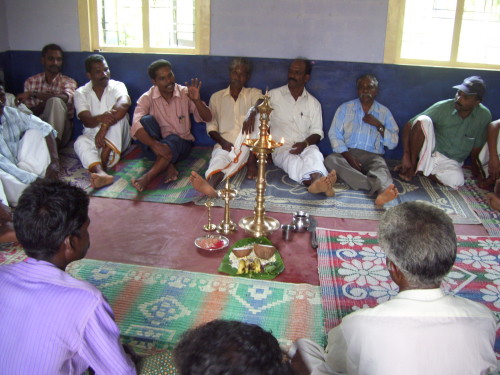
8/13 : KTS appreciated the
enormous initiative taken by the Ponnani area team, especially
Jayachandran in seeing the construction through.
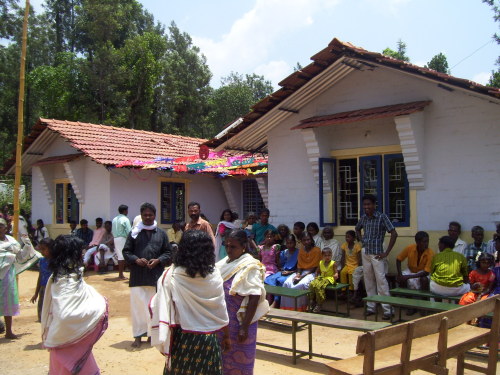
9/13 : The ceremony was another
sign of the simplicity that adivasi communities are known for.
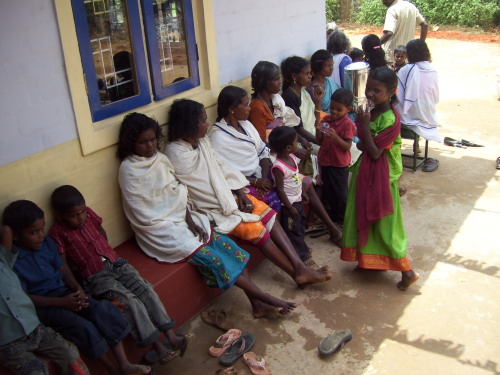
10/13 : Many young paniya
children came for the function - here sitting in the verandah, like in
their own homes
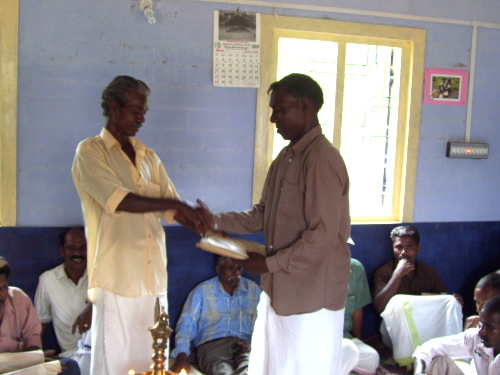
11/13 : All the masons and
workers involved in the construction were from the Paniya community
like Chenguttuvan here.
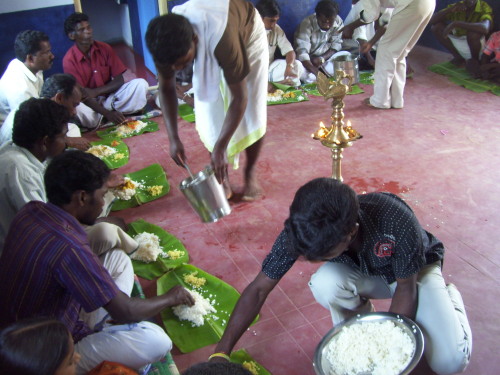
12/13 : With a simple meal, the
function came to an end. Volunteers cooked food in the centre itself
and served food for everyone.
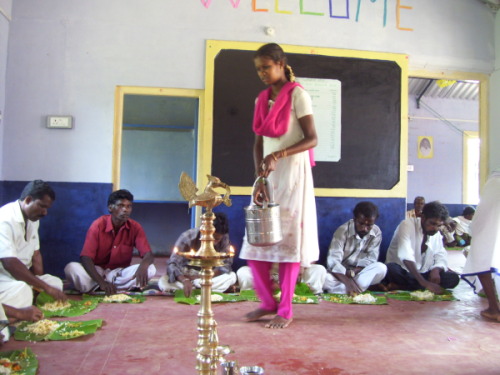
13/13 : More than 300 people
participated in the inauguration function, according to Seetha (serving
food here).
